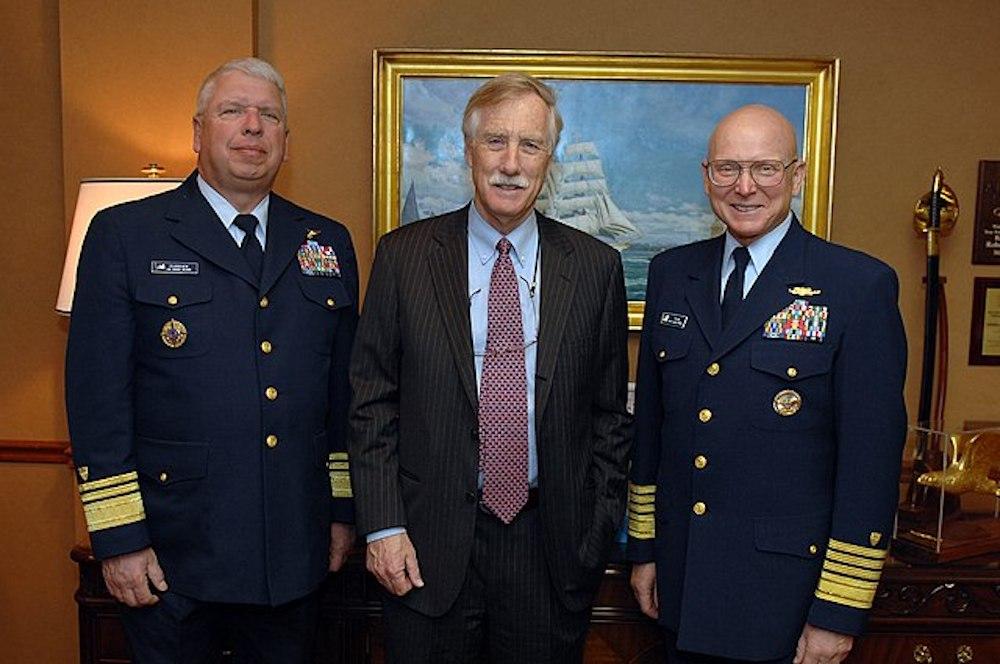
In a truly rare feat, U.S. Senator Angus King has been able to ride political centrism to power. Although previously affiliated with the Democratic Party, he declared himself an Independent when he first entered electoral politics with a successful run for Governor of Maine in 1994. Pushing an agenda that defied categorization as liberal or conservative, King was re-elected in 1998 by one of the largest margins in the state's history. Following the end of his governorship in 2003, King effectively dropped out of the public eye for nearly a decade, choosing to resume his legal career, among other business interests.
In 2013, however, King was not only back in the political spotlight, but he also managed to enter Maine's history books when he was sworn in as the state's first Independent U.S. Senator. Then, in 2018, Senator King—whose well-documented bipartisan views have been considered a welcome respite in today's exceedingly divisive political landscape—was re-elected to a second term. In his time in the Senate, King has earned the reputation as a workhorse, serving as a member of the Armed Services Committee, the Select Committee on Intelligence, the Committee on Energy and Natural Resources, and the Committee on Rules and Administration.
In the mid-1960s, King applied to Dartmouth, sight unseen, because during high school, his sister married a Dartmouth alum, and King "liked the guys at the wedding." With this type of social inclination, it is no surprise that once King arrived at Dartmouth, he joined the Delta Upsilon fraternity. Additionally, King's interest in politics was noticeable. Larry K. Smith, a former Dartmouth history professor, recalled the future-Senator in History 56, which covered the political history of the U.S. since 1864. According to Smith, the class—which was a study in power and how it’s used politically—attracted ambitious students. When political discussions would get going, “you could feel the heat in the room,” Smith recalled. He also remembered how King stood out: “For all of his prestige on campus, you never got the sense that he was a politician of any sort. And yet he was clearly recognized to be the class of his class. He carried himself with such ease and grace.” In 1966, King earned his Bachelor of Arts from Dartmouth.
One of King's more recent visits to Hanover, New Hampshire occurred virtually during the 2020 presidential campaign, when the Senator was the special guest for episode 8 of The Ballot, a Dartmouth podcast hosted by the University's Alumni Relations. Alongside moderator Mike Mastanduno, The Nelson A. Rockefeller Professor of Government and former dean of the faculty, King drew from his decades' worth of political experience to speak on topics such as bipartisanship, legislative governance, the federal debt, and COVID relief aid. Asked why the country feels so divided politically these days, King was ready with a response. "If I had to attribute it to any one development, it's what I call the balkanization of the news business," he said. "When I was coming up in the 60s and 70s, everybody in America got their facts and their news from one person . . . Walter Cronkite. But what's happening now is that there's such a diversity of sources of information, on all sides, people tend to choose the medium, or source of information, to suit their preexisting biases . . . The term is confirmation bias." Furthermore, King expressed to the Dartmouth community how important it was to educate people, "to be critical thinkers" as we move through these unprecedented times.
